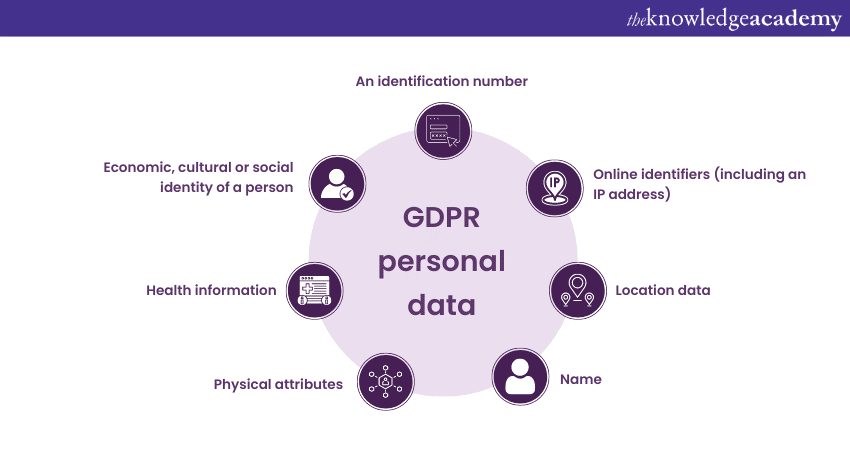We may not have the course you’re looking for. If you enquire or give us a call on 01344203999 and speak to our training experts, we may still be able to help with your training requirements.
Training Outcomes Within Your Budget!
We ensure quality, budget-alignment, and timely delivery by our expert instructors.

GDPR Interview Questions are essential to many job interviews, as organisations prioritise data privacy and compliance. To help you excel in these interviews, we have compiled a comprehensive set of answers to the most commonly asked General Data Protection Regulation (GDPR) Interview Questions in 2024.
Whether you are an experienced professional or a job seeker looking to familiarise yourself with GDPR concepts, this guide will provide you with valuable insights. Additionally, it will enable you to navigate discussions about data protection and regulatory compliance confidently. Want to impress your interviewer? Check out these top GDPR Interview Questions and answers in 2024.
Table of Contents
1) Top GDPR Interview Questions & answers in 2024
a) What is GDPR?
b) Who is impacted by GDPR?
c) How would you define personal data?
d) What obligations does the GDPR place on businesses?
e) What guidelines should businesses adhere to comply with the GDPR?
f) What are the penalties for GDPR breaches?
g) What proof do we require to prove that we abide by GDPR?
h) How Brexit impacts GDPR?
i) What is consent?
j) What are the data requirements for GDPR?
2) Conclusion
Top GDPR Interview Questions & answers in 2024
GDPR questions asked frequently in interviews can help candidates prepare for job interviews in the field of data protection and privacy. These questions are typically designed to assess the candidate's knowledge, understanding, and practical experience in GDPR compliance and data protection practices. By familiarising themselves with these GDPR questions and answers, candidates can demonstrate their expertise and suitability for GDPR-related roles. Let’s explore the top GDPR questions with answers:
What is GDPR?
GDPR is a European Union regulation that took effect on May 25th, 2018, replacing the Data Protection Directive (DPD) and the UK Data Protection Act 1998. Following extensive discussions, the GDPR was approved by the EU Parliament on April 14th, 2016. The regulation focuses on safeguarding personal data and upholding the rights of individuals. Its primary objective is to facilitate the secure transfer of personal data while enhancing privacy protection and rights for residents of the EU member states.

Who is impacted by the GDPR?
Benefits of GDPR applies to many entities and individuals as personal data has become integral to various aspects of our daily lives. It encompasses virtually every service we utilise, as they often involve collecting and analysing our personal information. The regulation applies to any company or organisation that operates within the European Union (EU). Moreover, it also extends its reach to companies or organisations outside the EU that offer goods or services to EU customers or businesses.
Suppose you operate a mobile application that collects and stores user location data within the European Union. In this case, GDPR would apply to your app, requiring you to adhere to the regulation's guidelines for handling and protecting users' personal data.
How would you define personal data?

GDPR applies to "personal data," meaning the information that identifies an individual, such as a name, identification number, online identifiers, location data, and other factors related to a person's identity. This broad definition covers various personal identifiers, including IP addresses. For instance, if you offer complimentary Wi-Fi within your establishment and gather the IP addresses of all users, this collection will fall under the scope of GDPR, necessitating compliance with the regulation's provisions regarding handling and protecting personal data.
Register in our Certified EU General Data Protection Regulation (EU GDPR) Practitioner course right away to learn about data protection principles and how they pertain to personal data.
What obligations does the GDPR place on businesses?
The GDPR mandates organisations to adhere to six data protection principles, which include:
a) Lawfulness, fairness and transparency
b) Purpose limitation and data minimisation
c) Accuracy
d) Storage limitation
e) Integrity and confidentiality
f) Accountability
Additionally, organisations must protect personal data from misuse and exploitation. In the event of a data breach, such as loss or theft of information, GDPR requires organisations to report specific breaches to relevant authorities within 72 hours.
What guidelines should businesses adhere to comply with the GDPR?
According to GDPR, businesses must adhere to the following:
a) Legal, fair, and transparent data processing
b) Data collection exclusively for specific, clear, and authorised purposes
c) Adequate and pertinent data collection
d) Accuracy in gathering personal data
e) Data retention only for the required duration
f) Protection of personal data to ensure security and integrity
What are the penalties for GDPR breaches?
Under the GDPR law, fines are determined based on a categorical approach, where the severity of the breach influences the penalty imposed. The maximum fine for a company ranges from either 4% of its annual global turnover or £20 million, whichever is higher.
The maximum fine for less severe violations, such as inadequate record-keeping, is 2% of the annual global turnover or £10 million. Since the implementation of the GDPR, significant fines have been issued for breaches, amounting to hundreds of millions in the year following its introduction. Although the largest penalties have decreased, they still reach tens of millions.
Master the lawful processing of personal data and how to deal with them effectively with our Certified EU General Data Protection Regulation (EU GDPR) Foundation course!
What proof do we require to prove that we abide by GDPR?
Unlike the Data Protection Act, GDPR emphasises the requirement for organisations to demonstrate compliance. Article 5(2) of the regulation specifies that controllers, such as your company, bear the responsibility of ensuring and being able to prove their compliance.
Therefore, it is advisable to document your GDPR processes thoroughly. This documentation serves as evidence that you have undertaken proper investigations and implemented reasonable measures to address any identified issues. This paperwork demonstrates that you have conducted appropriate research into what is a GDPR breach. Having such a document allows you to provide a clear reference point in case you are ever questioned about your compliance efforts.
How Brexit impacts GDPR?
Brexit refers to the withdrawal of the United Kingdom from the European Union, and it impacts GDPR by no longer making EU GDPR directly applicable to the UK. If a company holds the personal data of individuals while offering goods or services to EU citizens, it must adhere to the GDPR. However, since January 1st, 2021, the UK is no longer part of the EU, which means that EU GDPR no longer covers UK citizens.
Instead, most UK businesses and organisations are now governed by the UK General Data Protection Regulation (UK GDPR) in conjunction with the Data Protection Act 2018. The UK GDPR outlines the data protection principles, rights, and obligations and provides practical guidance through FAQs and checklists to facilitate compliance.
What is consent?
In GDPR, consent is a lawful agreement for processing personal data. It requires individuals to provide a clear, informed, and voluntary agreement for their data to be processed for specific purposes. Consent should be obtained through a positive action or statement and can be withdrawn at any time.
Organisations must ensure that consent is freely given, easily understandable, and properly documented. If the data subject is a child, consent must be gained from a parent or guardian. Organisations need to respect individuals' consent choices and provide mechanisms for withdrawal when processing personal data.
Join now in our comprehensive Certified Data Protection Officer (CDPO) course to gain the skills needed to navigate the complexities of data privacy laws!
What are the data requirements for GDPR?
a) Data processing should be limited to the purposes for which it was collected
b) Data must be accurate and regularly updated, or else it should be deleted
c) Storage of data should be done in a way that individuals can no longer be identified when it is no longer necessary
d) Data processing should be carried out securely to protect against unauthorised access, loss, or damage
Conclusion
We hope this blog helps you to discover the top GDPR Interview Questions and answers essential for job seekers in the data protection field. These questions cover key areas such as GDPR scope, GDPR Principles, lawful bases, individual rights, and compliance. Being prepared with these answers demonstrates expertise and readiness to handle GDPR requirements and contributes effectively to data protection efforts.
Unlock the power of GDPR compliance with our expert-led GDPR training course.
Frequently Asked Questions
Upcoming IT Security & Data Protection Resources Batches & Dates
Date
 Certified EU General Data Protection Regulation (EU GDPR) Foundation and Practitioner
Certified EU General Data Protection Regulation (EU GDPR) Foundation and Practitioner
Sat 25th May 2024, Sun 26th May 2024
Mon 8th Jul 2024
Sat 14th Sep 2024, Sun 15th Sep 2024
Mon 23rd Sep 2024
Mon 18th Nov 2024
Sat 7th Dec 2024, Sun 8th Dec 2024







 Top Rated Course
Top Rated Course


 If you wish to make any changes to your course, please
If you wish to make any changes to your course, please


